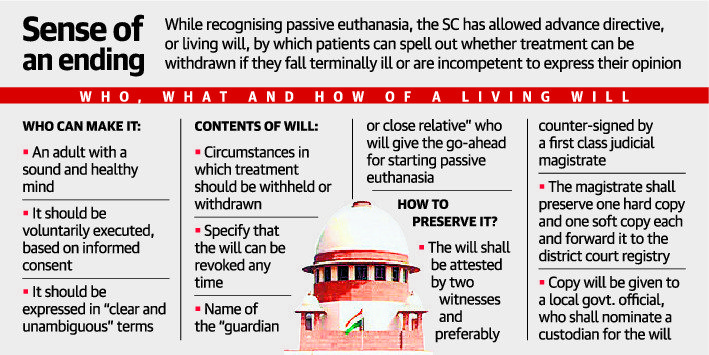The Supreme Court (SC) allowed passive euthanasia and right to give advance medical directives or ‘Living Wills’, stating that human beings have the right to die with dignity as part of fundamental right, but made sure to set out strict guidelines that will govern when it is permitted.
SC Verdict:
- Fundamental right to life and dignity under Article 21 of Constitution includes right to die with dignity.
- Dignity is lost if man is allowed or forced to undergo pain and suffering because of unwarranted medical support.
- It distinguished passive euthanasia from suicide and active euthanasia. It called passive euthanasia as mere acceleration of inevitable conclusion. It concluded that Active euthanasia is unlawful. It held that suicide involves overt acts which culminate in unnatural death.
- Valid ‘Living Will’ facilitates passive euthanasia and failure to legally recognise advance medical directive inconveniences right to smoothen dying process.
- In cases of terminally ill or permanently vegetative state patients, where there is no hope for revival, priority should be given to Living Wills and right of self-determination.
- It also laid down principles for execution of advance directives and spelt out guidelines and safeguards to give effect to passive euthanasia. The directive and guidelines shall remain in force till Parliament brings a legislation in the field.
